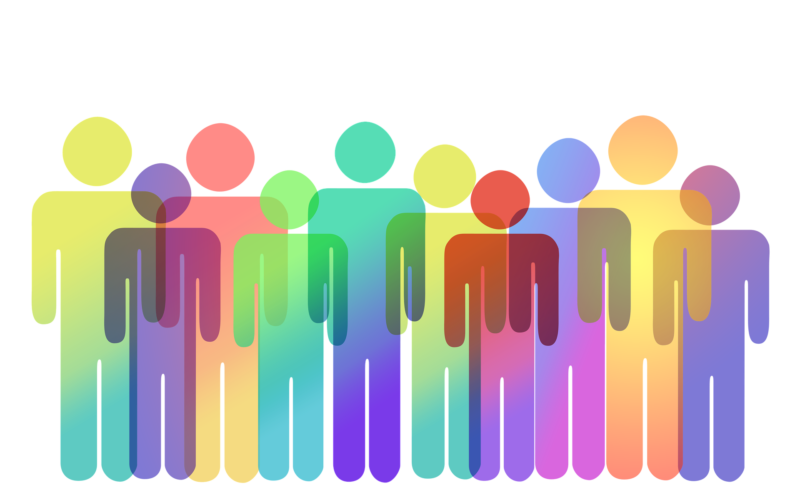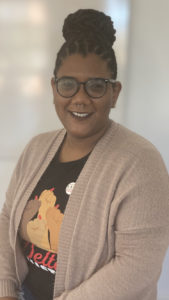How to Make Adult Programs & Classrooms More Inclusive

by Valerie Washington
Year 2020 has been a tough year for everyone, especially for adult learners who identify as BIPOC. Not only, hospitalizing and killing BIPOC at higher rates than their White counterparts (Centers for Disease Control and Prevention, 2020), it has also put a spotlight on systemic racism and inequities in healthcare, criminal justice, and educational systems (Race Forward, n.d.). Also, while sheltering in place, the United States watched as several unarmed Black women and men were murdered by the police (Donaghue, 2020). There has been a call for review in many spaces to address and make sure that
programs which serve a diverse population, including adult education programs, are not perpetuating and uplifting systemic racism through policies and educational content born in dominant, White Eurocentric culture. The following are suggestions on how to make adult programs and classrooms more inclusive and better serve adult learners of color.
Undergo professional development.
Teachers who engage in professional development learning opportunities such as trauma-informed education are able to positively change their practices (Brunzell et al., 2019). Many adult learners have experienced some type of trauma in their lives which may affect how they view the classroom and make it difficult to learn. Instructors who undergo trauma-informed educational training will develop a different way of thinking about some common issues that they might see in their classroom. Trauma-informed instructors may also provide a support that their students never had before and could become a game changer in how they view education. Implicit bias training can assist instructors in discovering their own personal bias that they may bring to the classroom. Personal biases towards poor people or BIPOC can take away from the work of empowering students to better their lives through literacy and workforce development.
Perform an equity audit.
Hiring a professional to evaluate your center in terms of finding more equitable ways to operate— and promote diversity and inclusion— can be a game changer. This can also be done in-house. An equity audit is also a great way to reevaluate mission statement, values, goals, and workplace culture of the organization and the programs provided (Proudman, 2015). EdEquityVA provides an easy-to-use tool for conducting your own equity audit and one for planning when your students to return to school.
Solicit different narratives.
Traditionally, history books promote the narrative of the dominant culture of the western European White population. For many adult education programs across the state, this narrative doesn’t resemble that of the students in the classrooms. Instead of teaching literacy through traditional textbooks, call upon stories and histories written by BIPOC that share different perspectives. Allow students to read books by authors that look like them. Call upon oral and localized histories. BIPOC are the foundation of American culture and should be celebrated and learned about more than once a year.
Facilitate dialogues about race.
Dialogues are a great way to learn from folks through thoughtful, facilitated conversations. If done well, participants of different backgrounds will feel safe enough to share their opinions, feelings, and stories without feeling judged. Keep in mind that each individual has their own opinions and experiences and should not be made to speak for their race or a subset of people.
Get rid of the “Other” box.
Does the application to your adult program ask for demographic information? If so, does it have an “other” box for applicants’ race, ethnicity, or gender that isn’t listed? The concept of “othering” throughout history has been a way to devalue people who identify as BIPOC and those with gender identities that many people don’t understand. Culture and gender identity is a large part of what make our adult learners diverse. While subtle, getting rid of the “other” box is a way for centers to validate prospective students. Extensively writing out more races, ethnic groups, and gender identities on applications would also improve data collection for adult programs as folks who check “other” do not share a cultural or gender identity with other folks who check the same box.
Last and most importantly, practice self care.
Diversity, Equity, and Inclusion (DEI) work is difficult and requires a lot of deconstructing of thought processes and norms taught by families, friends, and personal experiences. The work calls for sharing of power that can be uncomfortable for many people who have never had to do so. Take your time. Lean into the work, and take care of yourself.
Other reads recommended by Valerie:
The Anti-Racist Reading List
Virginia Black History Attractions
VDOE Virginia’s First People Past & Present, Culture, Language
Beloved Community C-Ville
Virginia Museum of History & Culture, Share Your Story
References
Brunzell, T., Stokes, H., & Waters, L. (2019, January 02). Shifting teacher practice in trauma-affected classrooms: Practice pedagogy strategies within a trauma-informed positive education model. School Mental Health, 11(3), 600-614. https://link.springer. com/article/10.1007/s12310-018-09308-8
Centers for Disease Control and Prevention. (2020, July24). Health equity considerations and racial and ethnic minority groups. https://www.cdc.gov/coronavirus/2019-ncov/community/health-equity/race-ethnicity.html
Donaghue, E. (2020, September 23). No charges in death of Breonna Taylor; officer indicted for endangering neighbors. CBS News. https://www. cbsnews.com/news/breonna-taylor-decisionlouisville-police-wanton-endangerment-grandjury/
Proudman, B. (2015). The roots of White male culture: From the British Isles through the American prairie
to the boardroom. WMFDP. https://wmfdp.com/wp-content/uploads/2015/05/roots-of-white-menculture.pdf
Race Forward. (n.d.). What is systemic racism?[videos]. https://www.raceforward.org/videos/systemic-racism
 Valerie Washington lives in Charlottesville where she has worked as an ABE instructor and tutor for more than two years. During the day, she assists individuals experiencing homelessness find housing and get off the streets. She advocates for a living wage, fair housing, and creating equitable spaces for all people. Valerie is currently pursuing her master’s degree in urban and regional planning through the L. Douglas Wilder School at Virginia Commonwealth University.
Valerie Washington lives in Charlottesville where she has worked as an ABE instructor and tutor for more than two years. During the day, she assists individuals experiencing homelessness find housing and get off the streets. She advocates for a living wage, fair housing, and creating equitable spaces for all people. Valerie is currently pursuing her master’s degree in urban and regional planning through the L. Douglas Wilder School at Virginia Commonwealth University.